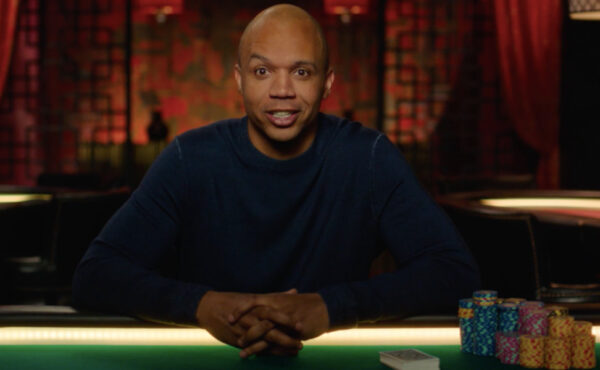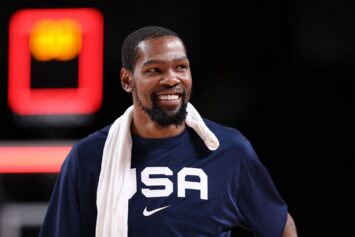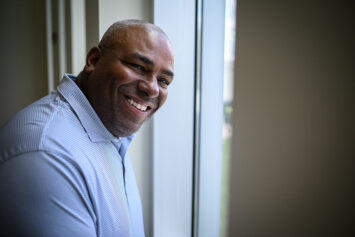Life is a gamble. No one knows that better than Phil Ivey, a 45-year-old American poker player, who has spent his life mastering the card game. A journey that began in his teenage years, when he gained the nickname “No Home Jerome” for sneaking into Atlantic City casinos, took him to winning 10 World Series of Poker bracelets and becoming one of the most feared players on the poker circuit.
In 2017, Ivey was inducted into the WSOP Poker Hall of Fame, a destiny he’d set for himself since high school.

Pull Up a Chair
Considered one of the greatest poker players of all time, tying with Phil Hellmuth, Doyle Brunson and Johnny Chan in WSOP wins, the majority of his wealth has come from competing in high-stakes ring games and tournaments. Ivey is also the youngest player to attain at least nine WSOP Bracelets and the only one to tie with Phil Hellmuth for ten of the coveted items of competitive jewelry. In 2005, Ivey was named Bluff Magazine’s Player of the Year for just dominating the competition.
In 2000, Ivey became the first person to defeat Amarillo Slim heads-up at a WSOP final table and two years later, his peers gave him the nickname “The Phenom” after he won three of his WSOP bracelets at the age of 25.
Between the 2002 and 2009 WSOP competitions, he was placed in the top 25 four times, and in 2009, Ivey had his best-ever result at the Texas hold ’em Main Event, finishing at the final table in seventh place.
A big winner, Ivey isn’t just making history with all of his achievements, but big bank, pulling the largest prizes from competitions like the 2014 Aussies Millions LK Boutique, where an AUD 4 million purse for winning the Aussie Millions $250,000 Super High Roller event. This is the second time he won this competition. Two years prior he gained a victory at the same event.
Bringing it Home for the Team
One of his most epic contests was against billionaire banker Andy Beal in 2006, according to PokerListings. Competing on behalf of “The Corporation,” a collective of sharks that includes names like Doyle and Todd Brunson, Ted Forrest, Johnny Chan, Jennifer Harman, Chau Giang and Minh Ly, he took on the banker with one mission — to win big.
Before this game, Beal and The Corporation had been in a rivalry for about five years until Beal challenged any member of the group to a few private high-stakes limit Texas Hold ’em games at the Bellagio. Over the years, the group had gone up against Beal many times, pooling their resources to match their opponent’s massive bankroll. Many times they lost, with an alleged loss as great as $10 million.
Doyle Brunson accepted the battle on behalf of the collective and put Ivey up to play against the billionaire.
The heads-up game is said to have started on Feb. 21. By 7 p.m., Ivey was said to be up to $2 million. The next day Ivey was up to about $4.6 million by the time their session ended in the early evening after eight hours.
The last day of the competition, Feb. 23, Beal and Ivey resumed their game in the morning. A change was made and limits were increased. The game was intense, so exhaustive that they broke in the afternoon. When they resumed, Ivey redeemed his friends with a massive pot, recouping their $10 million and earning them an additional $6.6 million.
Big Wins Don’t Always Come Easy or Clean
In 2012, Ivey won nearly $10 million in baccarat East Coast casino Borgata playing a series of sessions with one of his gambling partners outside of the Collective, Cheung Yin “Kelly” Sun. According to a lawsuit, filed by the casino in 2014, Sun and Ivey made an agreement to work together to have an edge on Borgata. Officials from the casino claimed they scammed their business.
At one point, they just sided with the casino, mandating Sun and Ivey cough up $10 million to the house. The two appealed, as Ivey was in jeopardy of losing tens of millions of dollars, according to Poker News.
It got ugly for the once-boy genius, as a judge granted Borgata the right to seize Ivey’s Nevada assets in 2019 and garnished his winnings from the $50,000 Poker Players Championship.
The legal war lasted for six years, with Ivey and Borgata having reached a settlement on July 2, 2020, as per a filing in the U.S. Court of Appeals for the Third Circuit.
The Bounce Back
During the summer of 2022, Ivey played in this year’s WSOP championship, making it to the final round against Aleksejs Ponakovs. This might have been viewed as a blow, considering just won two events in April, two events and reached five final tables at the Super High Roller Series Europe, but for those who follow the game, this is the first step to a bounce back.
Friends say the world should look out. Since he stopped competing as actively, Hellmuth went to win five additional bracelets in 2021. That’s Ivey’s new goal, to tie or beat that record, many believe. Whether he does or not, experts and his peers still consider him the greatest poker player ever.
Personal Philosophy
Now, with an estimated net worth of $100+ million, Ivey is clear this was all that he was born to do. Canvassing his life, from his teenage years to his forties, he has had a life mantra of knowing your purpose and being locked in.
“I never thought about poker not working out,” he said in an interview with the Card Player Lifestyle outlet. “When I started playing poker, I just thought this is what I’m going to do for the rest of my life. You have to think that way, and if it doesn’t work out, of course, you move on from there. But if you start out thinking any other way, you’re setting yourself up to fail.”




